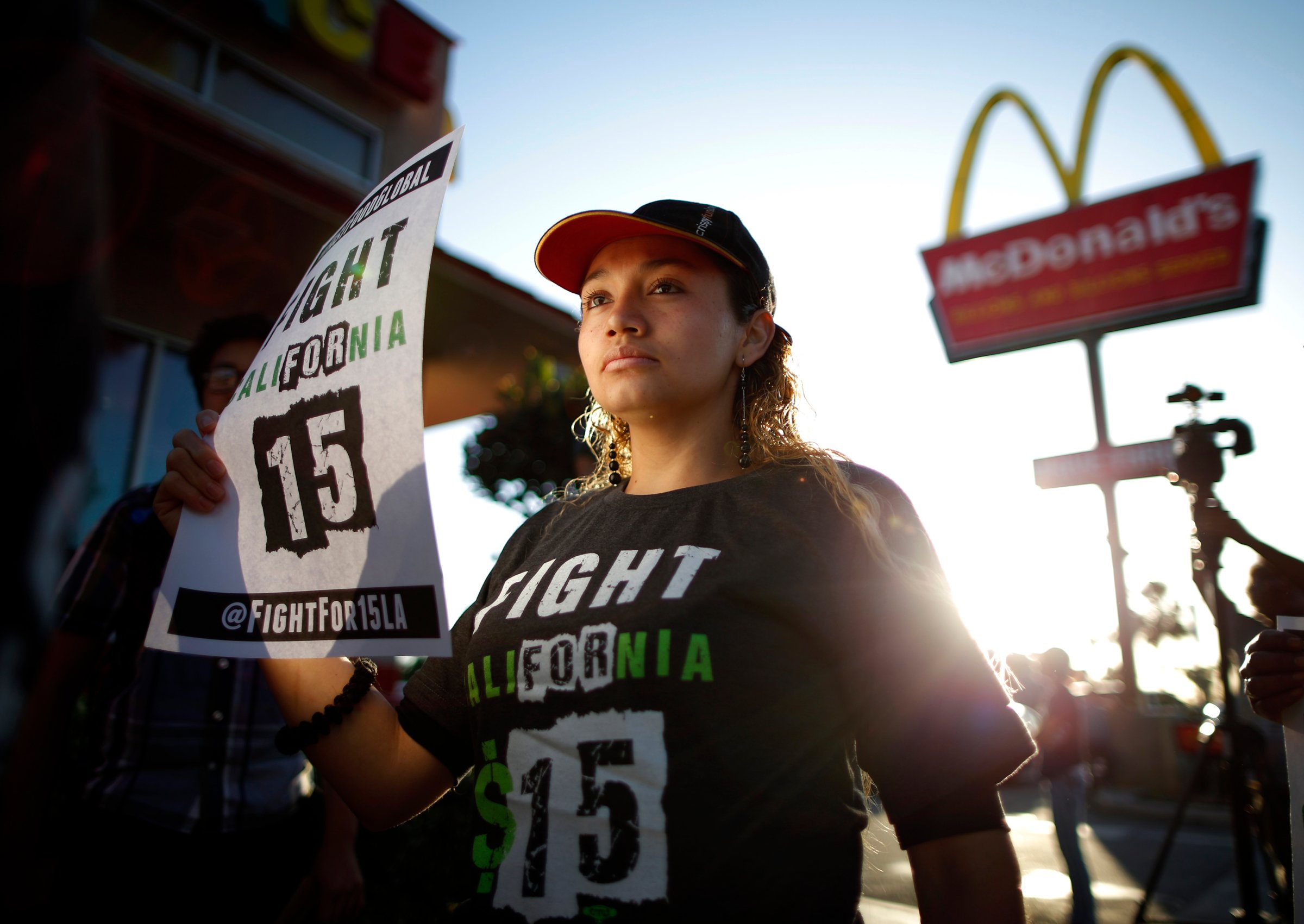
Another Labor Day, another bold plan to increase the minimum to help the working men and women of America!
On Monday, Los Angeles Mayor Eric Garcetti will announce a proposal to jack his city’s minimum wage from $9.00 all the way up to $13.25 over three years. That puts him ahead of President Obama, who has called for goosing the federal minimum wage from $7.25 to $10.10.
Increasing the minimum wage is typically sold as a way of aiding poor people — LA business magnate and philanthropist Eli Broad says Garcetti’s plan “would help lift people out of poverty.” But it’s actually a pretty rotten way to achieve that for a number of reasons.
For starters, minimum-wage workers represent a shrinking share of the U.S. workforce. According to the Bureau of Labor Statistics (BLS), the percentage of folks who earn the federal minimum wage or less (which is legal under certain circumstances) comes to just 4.3 percent of hourly employees and just 3 percent of all workers. That’s down from an early 1980s high of 15 percent of hourly workers, which is good news — even as it means minimum wage increases will reach fewer people.
What’s more, contrary to popular belief, minimum-wage workers are not clustered at the low end of the income spectrum. About 50 percent of all people earning the federal minimum wage live in households where total income is $40,000 or more. In fact, about 14 percent of minimum wage earners live in households that bring in six figures or more a year. When you raise the minimum wage, it goes to those folks too.
Also, most minimum-wage earners tend to be younger and are not the primary breadwinner in their households. So it’s not clear they’re the ones needing help. “Although workers under age 25 represented only about one-fifth of hourly paid workers,” says BLS, “they made up about half of those paid the federal minimum wage or less.” Unemployment rates are already substantially higher for younger workers — 20 percent for 16 to 19 year olds and 11.3 percent for 20 to 24 year olds, compared to just 5 percent for workers 25 years and older — and would almost certainly be made worse by raising the cost of their labor by government diktat. While a number of high-profile economists such as Paul Krugman have lately taken to arguing that minimum wage increases have no effect on employment, the matter is far from settled and basic economic logic suggests that increases in prices reduce demand, whether you’re talking about widgets or labor.
Finally, there’s no reason to believe that people making the minimum wage are stuck at the bottom end of the pay scale for very long. According to one study that looked at earning patterns between 1977 and 1997, about two-thirds of workers moved above the minimum wage within their first year on the job. Having a job, even one that pays poorly, starts workers on the road to increased earnings.
If we want to actually raise the standard of living for the working poor via government intervention, the best way to do it is via transfer payments — food stamps, housing subsidies, or even plain cash — that directly target individuals and families at or below the poverty line.
University of California sociologist Lane Kenworthy, a progressive who has called for a more generous social safety net, argues that virtually all increases in income for poor families in the U.S. and other wealthy countries since the late 1970s have been a function of “increases in net government transfers — transfers received minus taxes paid.” That’s partly because workers in poor households often have “psychological, cognitive, or physical conditions that limit their earnings capability” and partly because today’s “companies have more options for replacing workers, whether with machines or with low-cost laborers abroad.”
To be sure, arguing that you want to increase direct aid to poor families doesn’t give a politician the same sort of photo-op as standing with a bunch of union leaders on Labor Day and speechifying about the urgent need to make sure an honest day’s work is rewarded with a living wage.
But making just such a case could have the benefit of actually helping poor people in the here and now. Certainly a savvy politician could sell that to voters who know the value of hard work — and the limits of economic intervention.
More Must-Reads from TIME
- Introducing the 2024 TIME100 Next
- The Reinvention of J.D. Vance
- How to Survive Election Season Without Losing Your Mind
- Welcome to the Golden Age of Scams
- Did the Pandemic Break Our Brains?
- The Many Lives of Jack Antonoff
- 33 True Crime Documentaries That Shaped the Genre
- Why Gut Health Issues Are More Common in Women
Contact us at letters@time.com